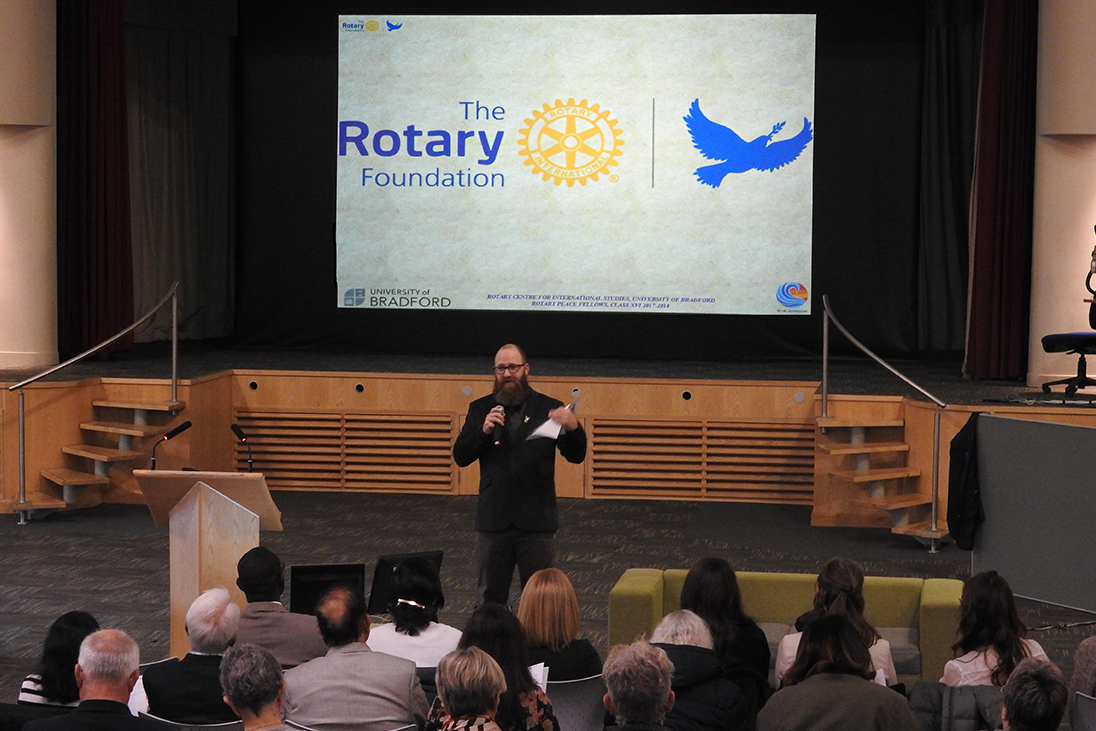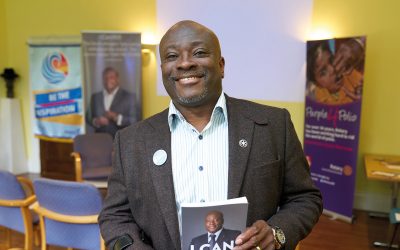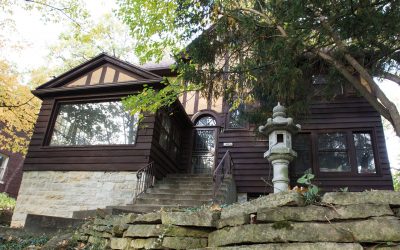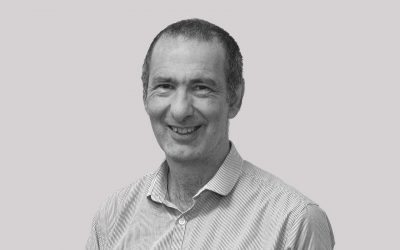Imagine trying to rest, in a fortified compound in the middle of Afghanistan, when you hear the dull thud of an explosion.
As a soldier, all sorts of thoughts go through your mind. Has one of your colleagues been killed or severely injured by a roadside bomb, has one of the villagers, possibly a child, suffered a similar fate, or was this a controlled detonation carried out by the bomb disposal team?
Lying atop his bed in a wooden hut in the heart of Helmand Province, these were some of the thoughts of Zach Cooper, a US Marine, who served as a field radio operator during his deployment in this war zone.
“The place where I was working was nicknamed IED alley,” explained Zach.


Zach Cooper addressing guests at the annual Billy Huntley Memorial Peace Seminar at the University of Bradford.
“What I was seeing was how these home-made bombs, which were meant for us, were impacting on the local community. Little kids playing football, people walking to the market, or carrying out their daily chores.
“On a daily basis we were finding IEDS (improvised explosive devices). We would have fathers and mothers carrying their injured children to the gates of our base pleading ‘help us, please’. We would do everything we could to help them.
“These IEDS are indiscriminate and that really affected me.”
Zach, a 33-year-old married man from Cleveland, Ohio, was talking in the unassuming surroundings of the University of Bradford, where he will graduate in December as one of 10 Rotary Peace Fellows.
It’s difficult to imagine a battle-hardened former US Marine, who has experienced first-hand the horrors of war, talking reflectively about peace. But for Zach, that tour of Helmand, was the lightbulb moment.
“This was start of my path to peace. Seeing what was happening in Afghanistan, and also when I returned home to the United States, witnessing the mental and physical toll which conflict can have on people, was really difficult. I realised there had to be a better way.”
This from a man whose family is steeped in military history, and whose grandfather served with the American Navy in three different conflicts.
After being honourably discharged from the Marines in 2012, Zach enrolled at Ohio State University to study for a degree in security and intelligence, with a minor in Arabic.
The place where I was working was nicknamed IED alley.”
While working towards his bachelor’s degree, he served as a veteran liaison for a non-profit organisation called ‘1 Day for the K.I.A.’ (killed in action), as well as acting as a student-veteran advocate for the university.
His aim was to help military veterans make the smooth transition to civilian life, as well as raising money to create scholarships for the families of veterans who had been killed or were missing in action – or who had been disabled in service.
During his time at Ohio State, Zach visited Northern Ireland to see how the peace process was working, and he also toured Israel and Palestine.
He recalled: “Up until this point, Israel and Palestine was a conflict which I cared about a lot but when you get to put your feet on the ground to see the conflict up close and meet the people who these conflicts affect, it changes everything.
“I spent some time in a Palestinian village which was in danger of being demolished by the Israeli military.
“There is a school in this village which is home to 150 children.
“When this village is destroyed, they will be relocated and these kids will have no opportunity for education. Education is not a privilege, it is a right.
“When I was there, the villagers heard they had received an injunction preventing the demolition.
“This was only a temporary injunction, but you could feel the joy and passion.”
I spent some time in a Palestinian village which was in danger of being demolished by the Israeli military.”
It is these experiences which Zach has carried with him to Bradford as he completes his studies with nine other Rotary Peace Fellows from around the world, and each with their own stories.
Where the path now leads Zach, who knows? But he admitted his 15 months in West Yorkshire has helped to re-assess his life and future goals.
He added: “When I was in Helmand, I could see the change in people physically and mentally. The experience affected me in a lot of ways too.
“I had to sit down and ask myself, why do I feel the way I feel sometimes? I had to address those personal issues.
“But, over time and coming here to Bradford, those are things I have worked on. I certainly believe that seeing it, understanding it and working to change it, has impacted my approach to waging peace.
“Peace is an effort. There are many ways to demonstrate peace in each of our daily lives. It is being kind to each other, using empathy to try to understand someone else’s perspective and eliminating violence to create something which is lasting, which creates a level of quality and opportunity which everyone can enjoy.”


























































